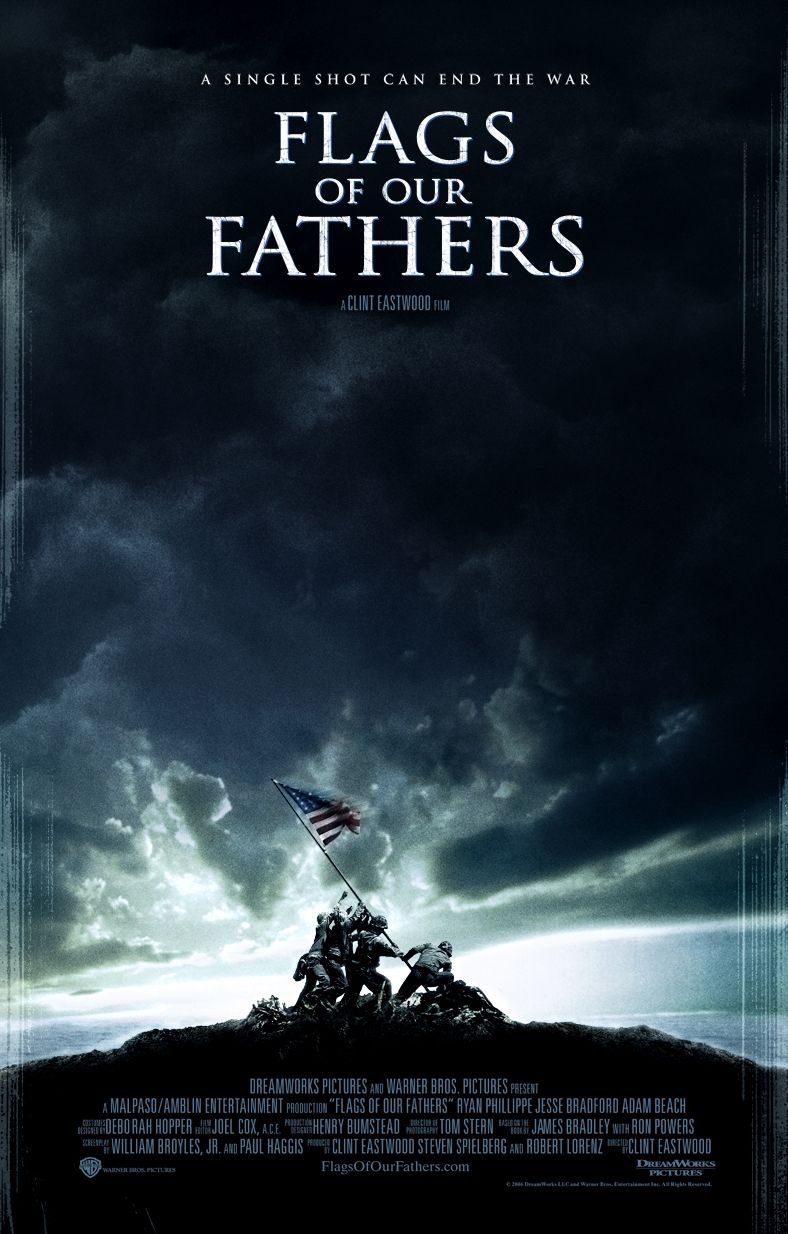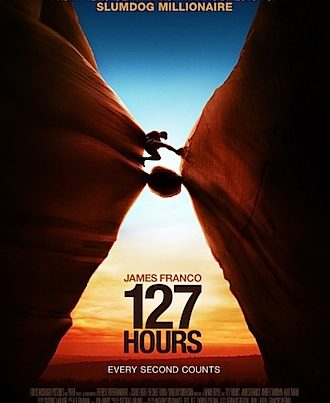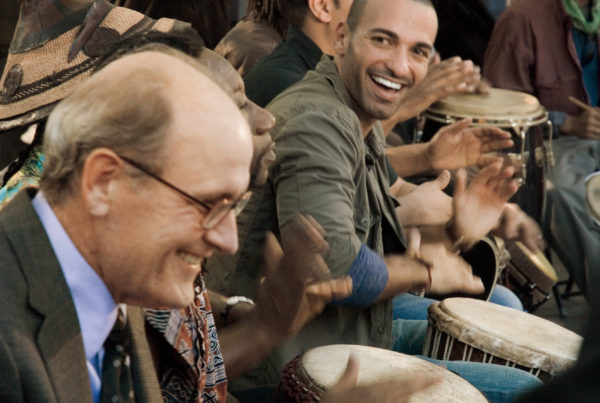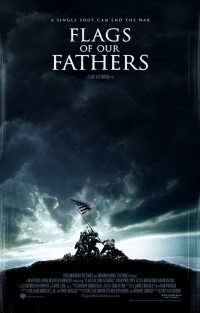 My grandfather, Doug Laurenson, served in the Pacific during WWII. He never spoke about that period of his life, preferred the bowling club to the RSA and his only souvenir was a tin cup that he found on the beach at Guadalcanal and which came to me when he died. I thought about him a lot while I was watching Flags of Our Fathers, Clint Eastwood’s superb film about the crucial victory at Iwo Jima in February 1945 and the equally crucial propaganda impact of the famous photograph of the Marines raising the Stars and Stripes there.
My grandfather, Doug Laurenson, served in the Pacific during WWII. He never spoke about that period of his life, preferred the bowling club to the RSA and his only souvenir was a tin cup that he found on the beach at Guadalcanal and which came to me when he died. I thought about him a lot while I was watching Flags of Our Fathers, Clint Eastwood’s superb film about the crucial victory at Iwo Jima in February 1945 and the equally crucial propaganda impact of the famous photograph of the Marines raising the Stars and Stripes there.
Iwo Jima itself resembles Mt Maunganui towed out to sea, a tiny, barren, volcanic nothing but with huge strategic and symbolic importance. Through elegant parallel storytelling the film focuses on the three survivors of the flag raising: through the terrifying battle itself, the ghastly fund-raising and cheer-leading that followed and the living (or in Ira Hayes’ case not living) with the experience into old age. Is there a better mainstream filmmaker than Eastwood? On this evidence I don’t think so. One of the films of the year.
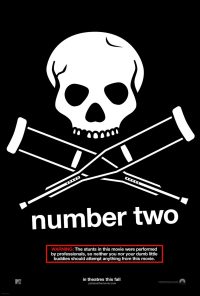 I feel certain that if the brave men who sacrificed their lives on Iwo Jima had known they were saving civilisation so that their grandchildren could produce nauseating garbage like Jackass Number Two they would have told Uncle Sam where to stick his flag. Unfortunately, they didn’t and I have to review it and own up to the fact that I laughed my ar$e off – it’s a damn funny film with no redeeming cultural merit whatsoever.
I feel certain that if the brave men who sacrificed their lives on Iwo Jima had known they were saving civilisation so that their grandchildren could produce nauseating garbage like Jackass Number Two they would have told Uncle Sam where to stick his flag. Unfortunately, they didn’t and I have to review it and own up to the fact that I laughed my ar$e off – it’s a damn funny film with no redeeming cultural merit whatsoever.
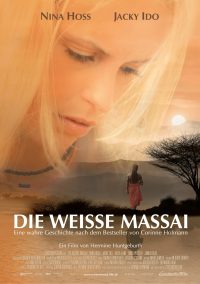 In The White Masai, the two lead actors (Nina Hoss and Jacky Ido) are almost as beautiful as the amazing Kenyan countryside. Hoss plays Carola, a Swiss tourist, who dumps her boyfriend at the airport after becoming captivated by the extraordinary figure of Lemalian (Ido), a Masai warrior. She heads into the bush to be with him, eventually producing a bonny child and a book that has sold over 4 million copies.
In The White Masai, the two lead actors (Nina Hoss and Jacky Ido) are almost as beautiful as the amazing Kenyan countryside. Hoss plays Carola, a Swiss tourist, who dumps her boyfriend at the airport after becoming captivated by the extraordinary figure of Lemalian (Ido), a Masai warrior. She heads into the bush to be with him, eventually producing a bonny child and a book that has sold over 4 million copies.
Unfortunately, the film is patronising towards the locals and self-serving in favour of the author who tries harder to get the Masai (and Lemalian) to change than she does herself. Describing it as “one of the great love stories” is a stretch as she barely lasts four years in the bush and bolts, taking the child with her, never to return.
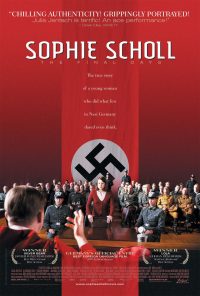 The story of internal German resistance to the Nazis has not been well told in cinema and, despite the honest efforts of Sophie Scholl: The Final Days, we are still waiting. The film stars Julia Jentsch (The Edukators and Downfall) as a young student in 1943 Munich who is caught distributing anti-Hitler leaflets at the University. She is part of a group called “The White Rose” who are trying to use peaceful means to stimulate resistance to the Nazis and end the catastrophe of World War II.
The story of internal German resistance to the Nazis has not been well told in cinema and, despite the honest efforts of Sophie Scholl: The Final Days, we are still waiting. The film stars Julia Jentsch (The Edukators and Downfall) as a young student in 1943 Munich who is caught distributing anti-Hitler leaflets at the University. She is part of a group called “The White Rose” who are trying to use peaceful means to stimulate resistance to the Nazis and end the catastrophe of World War II.
The film, as you might gather from the title, concentrates on Sophie’s arrest, interrogation and trial and as a result is talky and un-dynamic. The acting from Jentsch and Alexander Held as Mohr, her interrogator, is fine but there is no escaping the feeling that we are watching a stage play or (worse) television.
For Pop.
Printed in Wellington’s Capital Times on Wednesday 8 November, 2006.
Screening Conditions: Flags of Our Fathers looked and sounded mighty fine at Readings 3; Jackass Number Two was acceptable in Readings 1 though cinematography isn’t really the point in this case; the Penthouse barista let me down again on Sunday morning at The White Masai and the film looked a little shaky; like Beowulf & Grendel, Sophie Scholl is being screened from DVD which is only just acceptable.

